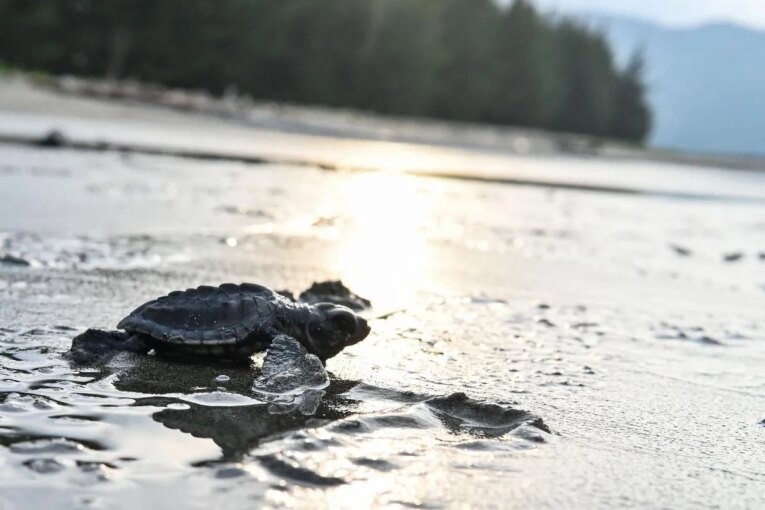
Plant a tree. Plan a rally. Ride a bike. The organizers of Earth Day, the global day for environmental action that falls later this month, say these are great ways to participate.
Sunwing has a different suggestion: celebrate this upcoming Earth Day by flying to a resort in a hot climate, offering five destinations that the travel company claims, with varying degrees of evidence, are “eco-friendly.”
“In honour of Earth Day, we’re r-eco-mmending — see what we did there? — some of our favourite resorts where you can enjoy everything you love about all-inclusive vacations while still protecting the natural beauty around them,” the promotion reads.
Experts said Sunwing’s promo is positive in one respect: it reflects an increasing demand from consumers for environmentally friendly choices, and suggests travellers are scrutinizing their vacation options for sustainability.
Whether Sunwing’s promotion stands up to that scrutiny is a different question. Air travel is a major source of carbon emissions: if the global aviation industry was a country, it would be among the top 10 emitters worldwide, according to the David Suzuki Foundation.
“Taking more flights doesn’t help. It makes things worse,” said Gideon Forman, Climate Change and Transportation Policy Analyst at the David Suzuki Foundation, adding that “if you’re concerned about the environment in these places in the global south — like Mexico, Cuba, or Grenada — these places are going to be terribly impacted by the climate crisis.”
“It wouldn’t be the way I would celebrate Earth Day, let’s put it that way,” Forman said.
“I care deeply about climate change, but I’m also not someone who says people should never fly in an airplane,” said Matthew Hoffmann, co-director of the Environmental Governance Lab at the Munk School of Global Affairs and Public Policy, adding that he himself takes flights.
“It is becoming more and more normal for resorts, for vacation destinations, for travel companies to tout sustainability. This is good. This means that people are expecting that and looking for it,” said Hoffman, a professor in the Department of Political Science at the University of Toronto Scarborough.
“But you actually have to do your research to see if these claims of sustainability are, you know, more than shallow.”
Sunwing did not respond to requests for comment on its Earth Day promotion, its climate change policies, or its specific statements about resorts.
The five resorts in the promotion include The Hideaway at Royalton Negril in Jamaica, which Sunwing says carries a “Green Globe” sustainable tourism certification. While other Royalton resorts in Jamaica are listed on the Green Globe’s website as certified, Negril is not; Sunwing did not respond to requests for clarification.
Sunwing Travel Group operates the Royalton resort as part of its hotel management company, Blue Diamond Resorts. It also operates Starfish Cayo Largo, another resort advertised in the Earth Day promotion.
That hotel, according to the promotion, sits on a coast with “pristine beaches that are nesting grounds for sea turtles;” guests who stay between April and September can visit a nearby rescue facility and participate in a sea turtle release program.
Sea turtles are an endangered species, and a major threat to their existence is habitat loss, including uncontrolled coastal development and disturbance from human activities, according to the World Wildlife Fund. Generally speaking, traffic on beaches compacts sand and makes it impossible for female turtles to dig nests for their eggs; bright lights disorient hatchlings and direct them away from the sea.
A third resort, the Grand Palladium Costa Mujeres, is a signatory on the Global Tourism Plastics Initiative. Another, Viva Wyndham Maya, carries a “Green Certification” given out by its owner, Wyndham Hotels & Resorts. The last, True Blue Bay Boutique Resort, uses energy-efficient air conditioning, solar water heaters and “eco-friendly bathroom amenities,” according to Sunwing.
Without a standardized, evidence-based, inspections-backed system, consumers have no way of assessing and comparing sustainability statements like the ones in Sunwing’s promotion, said Ellie Perkins, an ecological economist at York University.
“This is one of the things that people want governments to do, whether it’s for pharmaceuticals or for food … it’s incumbent upon governments to actually sort through all of this disambiguation and obfuscation and come up with something that people can actually depend on,” said Perkins, the lead author of a chapter on social aspects of climate mitigation in a 2022 report from the United Nations Intergovernmental Panel on Climate Change.
As for getting there, Forman said that Canadian airlines lag behind their European counterparts in climate goals. While Lufthansa has pledged to cut its net carbon emissions in half by 2030, Air Canada has committed to a 20 per cent cut in air operation-related emissions. Sunwing didn’t respond to questions about whether it has a similar reduction target, but said in a climate change disclosure report that it “continues to work collaboratively with industry associations on environmental management strategies.”
Emissions from Canadian airlines rose 75 per cent between 2005 and 2019, according to Canada’s Aviation Climate Action Plan, a voluntary initiative co-developed by industry and the federal government and released last fall. While efficiency improvements lowered the intensity of emissions from the industry, those gains were outpaced by the rising popularity of flying.
The action plan was criticized as weak when it was released, offering a “vision” of reaching net-zero emissions by 2050 and no firm near-term targets other than an “aspirational” goal of replacing 10 per cent of fossil fuels with Sustainable Aviation Fuels by 2030. Sustainable Aviation Fuels have the potential to be better for the environment but can also create other problems depending on what they are made out of.
Perkins said when she asks her students to calculate their own carbon footprint, they are “astonished” to discover how much air travel contributes: cutting a single flight a year often reduces their individual emissions by at least half.
does not endorse these opinions.
You can read more of the news on source



